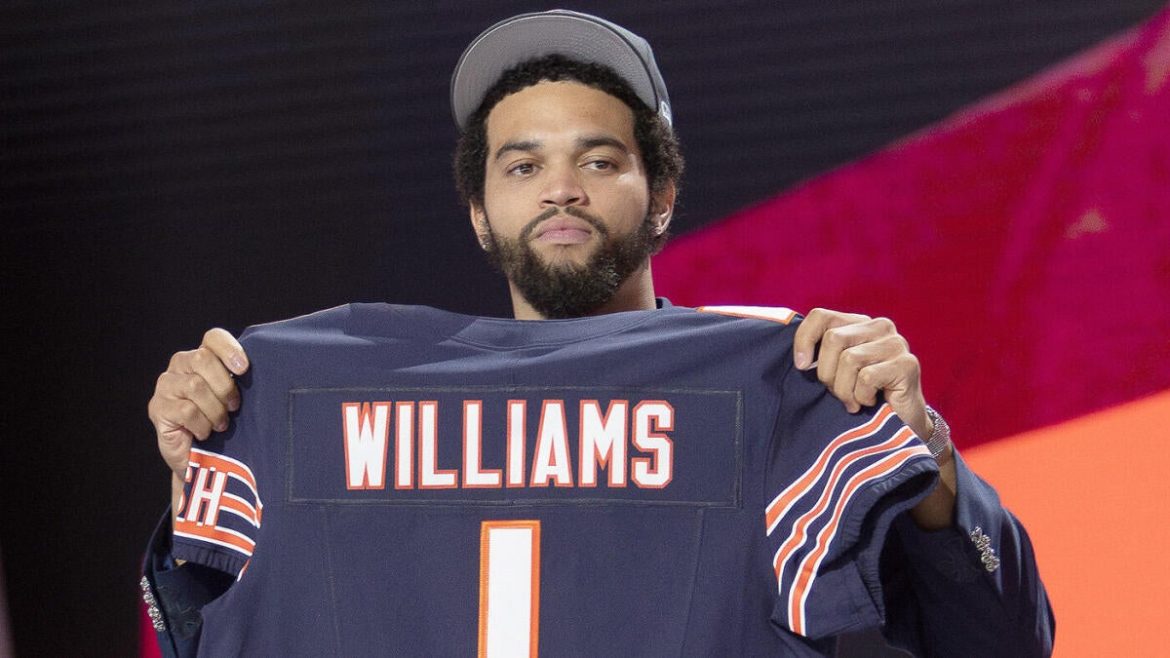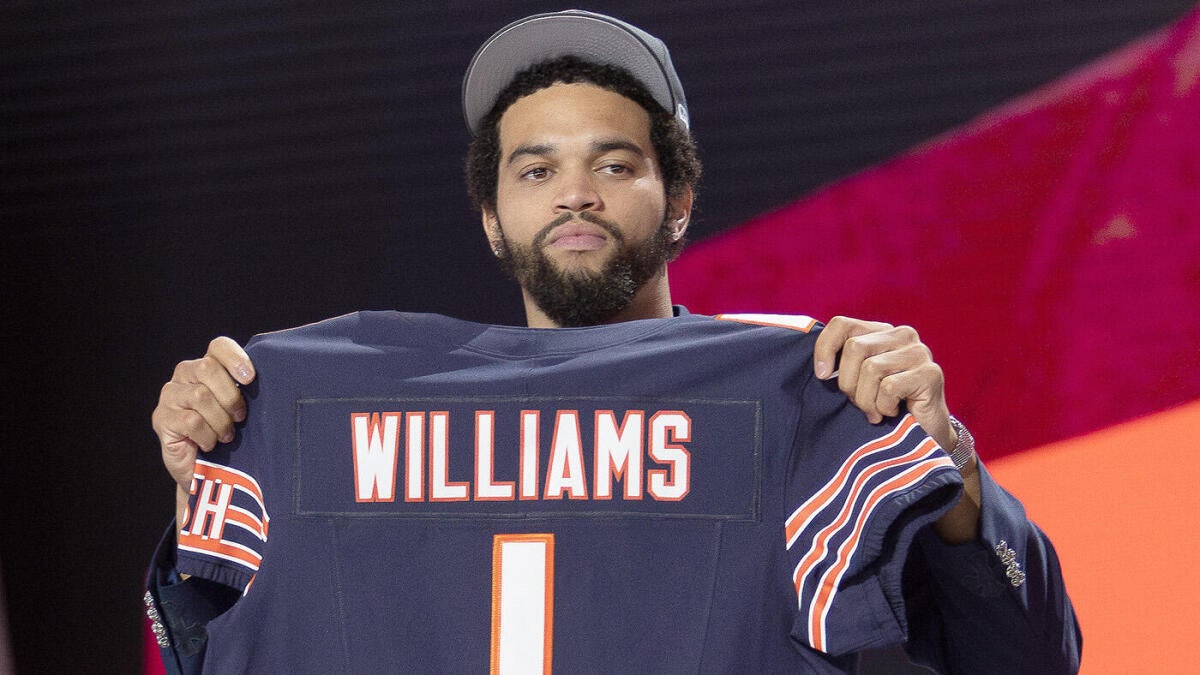Caleb Williams and the 2024 NFL Draft: Navigating Expectations, Team Fit, and Public Perception
Introduction
The 2024 NFL Draft marked a significant turning point in the Chicago Bears’ franchise history with their selection of quarterback Caleb Williams as the first overall pick. While Williams possesses exceptional talent and is widely regarded as a generational prospect, reports and revelations surrounding his draft experience unveiled a tapestry of emotions, strategic considerations, and complicated dynamics between player aspirations, organizational destiny, and media narratives. Analyzing the available information provides a multifaceted view of what Caleb Williams’ journey to becoming the Bears’ franchise quarterback truly entailed—illuminating his initial reservations, ultimate acceptance, and the broader implications for both player and team.
The Initial Reluctance: Avoiding the Chicago Bears
Multiple reports and excerpts from Seth Wickersham’s forthcoming book American Kings: A Biography of the Quarterback revealed that Caleb Williams and his family actively tried to avoid the possibility of him being drafted by the Chicago Bears. This hesitancy was highlighted in several pieces, noting that Williams’ father, Carl Williams, sought to prevent Chicago from selecting his son with the top pick and that the family explored ways to circumvent or influence draft outcomes. According to these accounts:
– There was a perception, openly expressed, that Chicago was a difficult landing spot for quarterbacks, encapsulated bluntly by Carl Williams’ reportedly grim characterization: “Chicago is the place quarterbacks go to die.” Such a sentiment underscores the deep skepticism about the franchise’s quarterback development and organizational stability.
– Caleb Williams himself was reportedly interested in the Minnesota Vikings, especially after a positive meeting with their head coach Kevin O’Connell at the NFL Scouting Combine. This interaction played a pivotal role in his initial draft intentions.
– Discussions extended to extreme measures; some sources even suggested Caleb and his family considered blowing up or working around the NFL Draft’s system to avoid landing in Chicago, highlighting the depth of their apprehension.
These factors paint a picture of a highly touted prospect grappling with the uncertainties attached to the Bears’ franchise—reflecting the broader dilemma many young quarterbacks face when entering the league under high expectations but uncertain conditions.
Transition and Acceptance: Embracing the Bears Opportunity
Despite initial resistance, Williams ultimately came to terms with the Bears’ selection. Reports indicated that a critical moment occurred during a pre-draft visit to Halas Hall, the Bears’ headquarters, where Williams met with team personnel and absorbed the organizational culture. After evaluating the environment, he expressed confidence in his ability to succeed, saying in essence, “I can do it for this team.”
Caleb’s public statements further emphasized his commitment, directly addressing and denying rumors that he did not want to play for the Bears. He embraced the challenge of leading a franchise historically hungry for a franchise quarterback, positioning himself as a catalyst for change in Chicago.
This transition is noteworthy:
– It illustrates a maturation process, where initial fears and uncertainties gave way to a pragmatic acceptance of opportunity.
– It reflects the business-minded and mature approach Williams reportedly brings—focused on seizing potential for success despite obstacles.
– Williams’ willingness to confront skepticism about the Bears indicates an emerging leadership mentality poised to galvanize both the locker room and fanbase.
Legacy and Pressure: The Weight of Expectations in Chicago
The Chicago Bears have long sought a transformational quarterback to restore competitive prominence, and Caleb Williams arrived with that expectation firmly attached. His selection at No. 1 overall places him under immense scrutiny—the “can’t miss” prospect tag comes with both opportunity and an implicit challenge never to falter. The narrative around his unwillingness to be drafted by Chicago contrasts starkly with the franchise’s hopes that he will be the definitive answer to decades of quarterback struggles.
Considerations around this dynamic include:
– Rookie quarterbacks historically face difficult transitions; yet recent examples such as C.J. Stroud and Joe Burrow rising quickly provide parallels that temper the argument that expecting immediate impact is unfair.
– Media speculation about Williams potentially sitting out or refusing to play, though strongly denied by him, reflects ongoing tensions about player agency, draft control, and franchise power.
– The Bears’ current roster and organizational culture potentially offer a foundation for Williams to thrive, though the challenge of competing against dominant rivals like the Green Bay Packers remains significant.
– Enthusiasm surrounding his talent is tempered by the franchise’s urgent need for tangible results, creating a high-stakes environment for development and success.
Implications for the NFL Draft Process and Player Empowerment
Williams’ draft experience also illuminates broader questions about the NFL’s draft system and player empowerment:
– The notion that a top-tier prospect might try to “blow up” or circumvent the draft highlights tensions in the forced-draft model, where players have limited control over their destination.
– His family’s active involvement in steering his draft outcome underscores how modern athlete representation includes not just agents but familial strategies.
– The delicate balance between organizational control and player preferences continues to evolve, with high-profile cases like Williams’ amplifying discussions about reform or flexibility in player movement.
– Williams’ pragmatic eventual acceptance points toward a new kind of professional maturity, where elite athletes weigh options but ultimately acknowledge structural realities.
Conclusion: A Complex Narrative Beyond the Draft Board
Caleb Williams’ journey through the 2024 NFL Draft was far more than an uncomplicated first-overall pick announcement. Behind the headlines lay a nuanced story involving family concerns, organizational reputations, personal aspirations, and the intricate realities of professional sports. While his initial attempts to avoid the Chicago Bears reveal legitimate apprehensions about landing spots, his eventual embrace of the franchise signals a readiness to meet challenges head-on, poised to reshape the narrative around Chicago’s quarterback future.
For the Bears, securing Williams presents a historic opportunity to build around a generational talent. For Williams himself, it represents an uncharted chapter where expectations are soaring, but so too is his potential to transform not only a franchise but also how quarterback tenacity and leadership are perceived in a demanding market.
In the end, Williams’ story is a testament to the complex interplay of athlete ambition, franchise dynamics, and the evolving landscape of professional football—a compelling saga that will continue to unfold as his NFL career begins.





